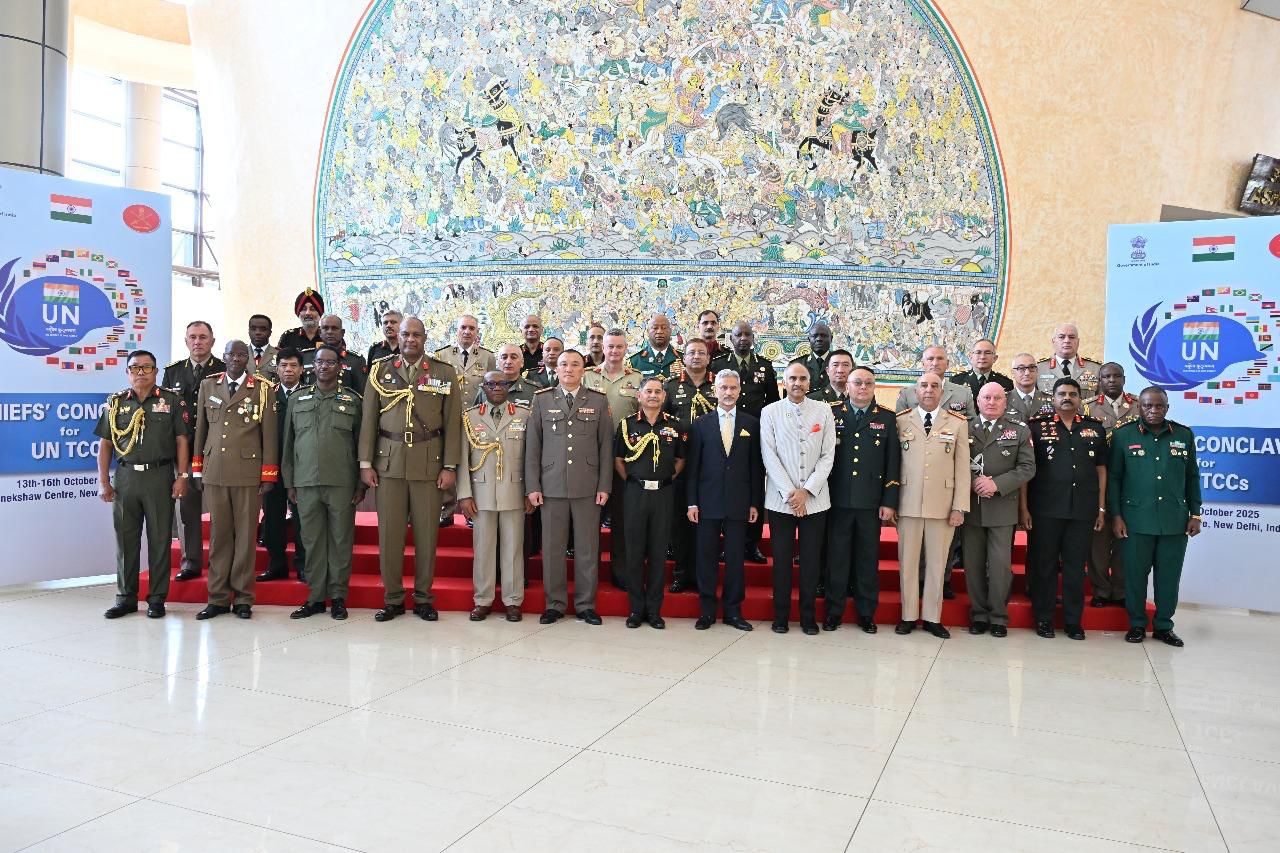Common Daily Habits That Could Be Harming Your Organs, Says Mumbai Surgeon
UNTCC Chiefs’ Conclave 2025 Ends with Call for Inclusive and Tech-Driven UN Peacekeeping
NEW DELHI, Oct. 16, 2025
The UN Troop Contributing Countries (UNTCC) Chiefs’ Conclave 2025, hosted by the Indian Army from October 14 to 16, concluded in New Delhi with a strong message for the future of global peacekeeping — one that is more inclusive, technology-driven, and adaptive to the changing nature of conflicts around the world. The three-day event brought together senior military leaders, policymakers, and representatives from multiple nations who contribute troops to United Nations peacekeeping missions.
The conclave featured high-level discussions, ceremonies, and networking sessions focused on strengthening coordination among troop-contributing nations. Leaders agreed that peacekeeping must evolve to address modern security challenges such as cyber warfare, the rise of non-state actors, and asymmetric threats.
President Droupadi Murmu met with the Chiefs and representatives of the participating nations at Rashtrapati Bhavan. She praised the dedication of peacekeepers worldwide and acknowledged the significant role of Indian soldiers in UN missions. The President emphasized that global peacekeeping today demands a unified approach where countries work together, share expertise, and integrate new technologies to protect peacekeepers and improve mission outcomes.
She noted that forums like the UNTCC Conclave are essential for building mutual understanding and developing practical strategies for complex operations. Highlighting India’s long-standing commitment to UN peacekeeping, she said such gatherings strengthen global cooperation and inspire confidence in collective efforts for peace.
External Affairs Minister S. Jaishankar addressed the conclave, noting that the nature of modern conflicts is changing rapidly, with new challenges arising from non-state actors and evolving warfare tactics. He said that peacekeeping missions must be recalibrated through realistic and flexible mandates, designed in consultation with troop-contributing and host countries. He added that technological innovation and stronger safety measures are vital to ensure the welfare and effectiveness of UN forces in the field.
A key highlight of the conclave was an interactive session on “Leveraging Technology in UN Peacekeeping,” which brought together Chiefs and representatives from several nations, along with 15 industry experts. The session explored how emerging technologies and indigenous innovations can improve operational efficiency, logistics, situational awareness, and troop safety in mission areas.
Chief of the Army Staff General Upendra Dwivedi held bilateral meetings with his counterparts from Burundi, Tanzania, Poland, Ethiopia, Nepal, and Uganda. The discussions focused on enhancing defence cooperation, improving interoperability, and boosting coordination for future peacekeeping operations. These talks reflected the overall spirit of partnership and shared responsibility that defined the conclave.
A Defence Expo was also organized as part of the event, showcasing nine operational domains and 41 exhibitors. The exhibition featured indigenous weapons, platforms, and advanced technologies, highlighting India’s focus on self-reliance and innovation in defence manufacturing under the Aatmanirbhar Bharat initiative.
On the final day, the visiting Chiefs and their spouses paid tribute to India’s fallen soldiers at the National War Memorial. Later, they participated in a tree plantation ceremony at the Manekshaw Centre, where Ashoka saplings were planted in the “Peacekeepers Grove” as part of the national campaign Ek Ped Maa Ke Naam. The symbolic act represented gratitude, unity, and the bond between humanity and nature.
The conclave concluded with a joint statement affirming that UN peacekeeping must become more inclusive, involve greater participation from troop-contributing nations, and adopt cost-effective technologies to ensure safety and success in the field. The leaders also stressed the importance of realistic mandates, improved training, and deeper trust-based cooperation to strengthen the global peacekeeping system for the future.
UNTCC Chiefs’ Conclave 2025 Calls for Inclusive, Tech-Driven UN Peacekeeping
The UN Troop Contributing Countries Chiefs’ Conclave 2025, hosted by the Indian Army in New Delhi, ended with a strong call for modern, technology-driven peacekeeping. President Droupadi Murmu praised global peacekeepers and urged greater cooperation to ensure their safety. External Affairs Minister S. Jaishankar emphasized realistic mandates and the use of technology in evolving missions. Chiefs from multiple nations discussed innovation, interoperability, and defence cooperation. The conclave concluded with a shared vision for inclusive decision-making, stronger partnerships, and enhanced global peacekeeping capabilities rooted in trust and technological progress.














Add Comment